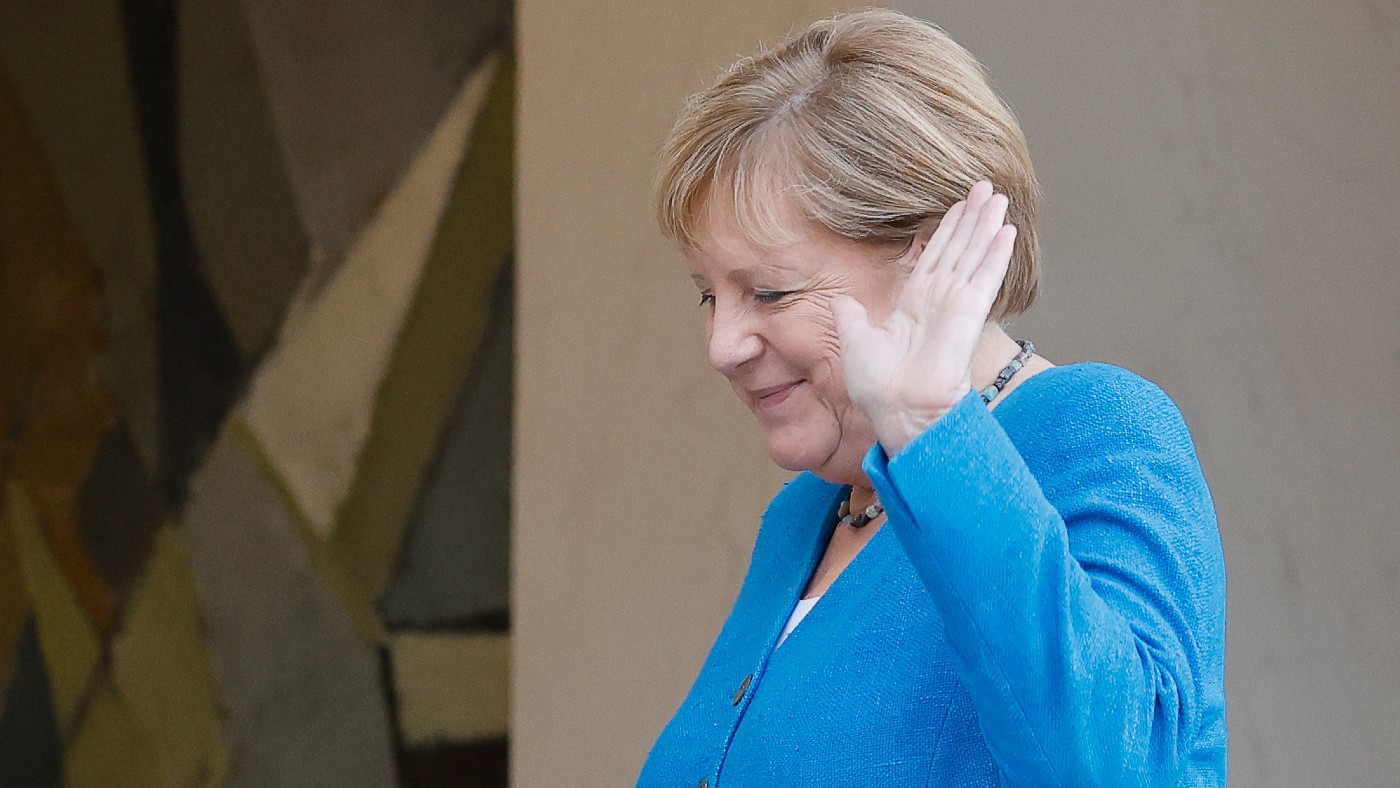Angela Merkel’s long goodbye
German chancellor is leaving with ‘sky-high approval ratings’ - but does she deserve them?

A free daily email with the biggest news stories of the day – and the best features from TheWeek.com
You are now subscribed
Your newsletter sign-up was successful
“Angela Merkel’s decision to quit Germany’s political stage after 16 years as chancellor left millions of votes up for grabs,” said Guy Chazan in the FT. In last Sunday’s election, “Olaf Scholz seized them with both hands – and won.”
Scholz, the candidate of the centre-left Social Democrats (SPD), understood that the loyalty of many voters was to Merkel herself – pragmatic, dependable, experienced Merkel – rather than her party, the centre-right Christian Democratic Union (CDU).
As vice-chancellor and finance minister in Merkel’s coalition, Scholz presented himself as her “natural successor”, and ran an uncluttered campaign based on a higher minimum wage, stable pensions, affordable housing and a carbon-neutral economy. The canny strategy nudged his party just ahead of the CDU in the election results, something few would have predicted last year, when a floundering SPD was at a “nadir” in the polls. Now Scholz looks the likely front runner for chancellor.
The Week
Escape your echo chamber. Get the facts behind the news, plus analysis from multiple perspectives.

Sign up for The Week's Free Newsletters
From our morning news briefing to a weekly Good News Newsletter, get the best of The Week delivered directly to your inbox.
From our morning news briefing to a weekly Good News Newsletter, get the best of The Week delivered directly to your inbox.
Merkel is leaving with “sky-high approval ratings”, said Tom Nuttall in The Economist. But does she deserve them? Sure, she was a “diligent scientist-stateswoman”, reassuring in “an age of noisy populism and nationalist showmen”. Yet she was also “a hesitant politician” who struggled “to convert analysis into action”.
She leaves admitting herself that she has failed to act decisively on climate change. Germany emits more carbon dioxide per head than most other EU countries. She dominated four coalition governments, but failed to tackle “growing income inequality, ragged housing markets and persistent child poverty”.
Her one decisive step – throwing open Germany’s borders to a million asylum seekers in 2015-16 – toxified the migration debate across Europe. She certainly made mistakes, said James Hawes on UnHerd. But look what she has weathered since 2005: the financial crisis, the immigration crisis, the pandemic.
Even when the far-right AfD seemed to be threatening to “tear into the CDU”, she “stuck to her guns”. “She refused point-blank to trim her course to pick up AfD voters.” She stuck up for liberalism, and she won. If she had tacked right, as David Cameron did to appease UKIP, “God alone knows where we would now be”.
A free daily email with the biggest news stories of the day – and the best features from TheWeek.com
Britain may well miss Merkel, said The Observer. She was a “consummate consensus-builder” who used “goodwill and common sense” to hold the EU together. We’ll need her kind of approach if we’re ever to forge a “rational” political and security relationship with Brussels after Brexit. The worry now is that a “weak, compromised” German coalition may not be able to provide it.
Slow down, said Allison Meakem in Foreign Policy. Merkel will stay on until a new government is formed, and wrangling over the shape of the new coalition could go on for months, perhaps into 2022. Even after so long at the helm, Merkel “may not get the swift retirement she hoped for”.